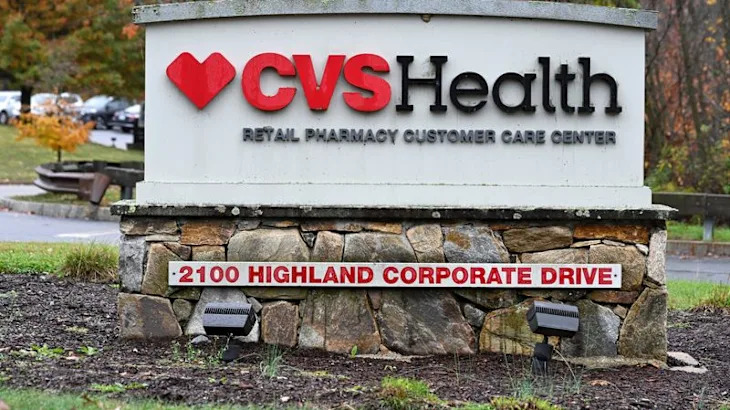By Manas Mishra and Sneha S K
(Reuters) -CVS Health raised its full-year profit forecast on Thursday and said it plans to exit the market for Obamacare health insurance plans in 2026, as it seeks to turn around its fortunes after a series of challenges last year.
CVS shares jumped 5% to $69.84 after it raised its 2025 profit forecast to $6 to $6.20 per share from $5.75 to $6 previously.
CEO David Joyner, who took the helm of the healthcare conglomerate in October, has laid out cost-cutting plans and reshuffled the top management to help the company navigate one of the most challenging periods in its six-decade history.
Joyner said the decision to exit the business selling plans directly to individuals through the Affordable Care Act, or Obamacare exchanges, came after continued underperformance in that business.
"Despite our multi-year efforts, we must recognize what is and what is not working and will focus on the areas where we have a clear right to win," Joyner said.
CVS shares fell over 40% last year due to weak performance in the company's Aetna insurance and retail pharmacy businesses, and multiple cuts to its profit outlook, but have pared most of those losses this year following a better-than-expected earnings report in February.
CVS reported a first-quarter adjusted profit of $2.25 per share, up from $1.31 a year ago and well above analysts' average estimate of $1.70, according to LSEG data, helped by lower-than-expected medical costs.
That should come as a relief to investors after industry bellwether UnitedHealth cut its forecast last month, citing elevated costs.
"The 2025 outlook was raised... this is key as it reverses the trend over the past few years of CVS cutting its earnings guidance," James Harlow, senior vice president at Novare Capital Management, which owns 55,244 shares of CVS.
"It seems like management has gotten a better handle of the business and has installed good leaders among the executive suite," Harlow added.
WEIGHT-LOSS DRUG COSTS
CVS also said its Caremark pharmacy benefit management unit had decided to drop Eli Lilly's weight-loss drug Zepbound as a preferred product from its reimbursement list from July 1. It will retain rival Wegovy after negotiating more favorable pricing for Novo Nordisk's medicine, saying that will make the drug more affordable for patients.
The news sent Lilly's shares tumbling 7%, while Novo's U.S.-listed shares rose 2.5%.
Pharmacy benefit managers negotiate rebates and fees with drug manufacturers, and create lists, or formularies, of medications that are covered by insurance, and reimburse pharmacies for patients' prescriptions.
Revenue from its large retail pharmacy unit of $31.91 billion beat estimates of $30.96 billion. Its health services unit brought in revenue of $43.46 billion, also above estimates of $43.30 billion.
CVS' medical loss ratio, or the percent of premiums spent on patient care, fell to 87.3% in the first quarter from 90.4% a year ago, below analysts' expectations of 88.9%, according to estimates compiled by LSEG.
Total revenue for the quarter rose by $6.15 billion to $94.59 billion.


